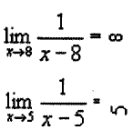|
Does the string work if they aren't variable? Like if you just type the full, expanded command, does it perform as expected? Because of so the problem is your variables, not the & in sed.
|
|
|
|

|
| # ? Jun 6, 2024 22:33 |
|
What are the things I need to look at to drop the power draw of my NAS? It's an old Haswell Xeon E3-1230v3 with four 5400rpm hard drives and it's currently using 55W. According to random stuff I googled, it ought to run at lower than that. Are there any guides on how to tune for lower power usage? --edit: According to turbostat, the CPU is like 99.8% in C7s state. I guess I have to tear this thing apart to see what's going on. --edit: That RAPL stuff from Intel says the CPU only uses 4W. This is gonna be fun figuring out. Combat Pretzel fucked around with this message at 18:09 on Dec 1, 2021 |
|
|
|
LochNessMonster posted:They're actual variables. It reads from a file (template) and replaces a placeholder value before writing back to file. (BTW you have a typo "orginal" in your example there.) FWIW a single backslash works for me: Shell session code:JLaw fucked around with this message at 18:08 on Dec 1, 2021 |
|
|
|
RFC2324 posted:Does the string work if they aren't variable? The behaviour is exactly the same if I use the values instead of the variables. The behaviour comes from the & being a special character in sed. JLaw posted:(BTW you have a typo "orginal" in your example there.) ah that typo is from phoneposting, the original code does not have it. I've tried to come up with escaping the & with something like fixed_value="$(echo $new_value | sed -e 's/[&]/\\&/g')" but that didn't seem to work either. Tried with both single and double backslashes as escape character. Might have to go with a different solution instead of sed I guess.
|
|
|
|
LochNessMonster posted:The behaviour is exactly the same if I use the values instead of the variables. The behaviour comes from the & being a special character in sed. My suggestion would be to go with a general purpose scripting language (Perl, Ruby, Python, etc) that doesn't have complicated and counterintuitive string interpolation rules, because you're going to be fighting with both bash and sed to handle all the special cases, and you can still accomplish the same thing with a Perl or Ruby one-liner: code:code:code:
|
|
|
|
MrPablo posted:My suggestion would be to go with a general purpose scripting language (Perl, Ruby, Python, etc) that doesn't have complicated and counterintuitive string interpolation rules, because you're going to be fighting with both bash and sed to handle all the special cases, and you can still accomplish the same thing with a Perl or Ruby one-liner: This is good post. And yeah, I was aware of the special behavior of & in sed, I'm also aware that bash has weird funky rules that can gently caress with special behaviors, especially in regards to passing them through a variable. Basic troubleshooting sometimes involves thinking basic thoughts. Do the(ugh) perl route, its gonna be the easiest
|
|
|
|
That's been my approach for years. Shell scripts are my default choice when approaching an issue but the instant I spend more than 30 seconds wondering how to arrange single and double quotes to get the result I want I give up and switch to python. At that point it's just not worth the effort of coaxing shell into doing what I want.
|
|
|
|
xzzy posted:the instant I spend more than 30 seconds wondering how to arrange single and double quotes to get the result I want I give up and switch to python.
|
|
|
|
xzzy posted:That's been my approach for years. Shell scripts are my default choice when approaching an issue but the instant I spend more than 30 seconds wondering how to arrange single and double quotes to get the result I want I give up and switch to python. At that point it's just not worth the effort of coaxing shell into doing what I want. I have trouble wrapping my head around needing to define functions and poo poo in advance, so struggle with the need to do some poo poo in an actual programming language. That said, I'm glad I have friends who do programming and are happy to help me
|
|
|
|
Combat Pretzel posted:What are the things I need to look at to drop the power draw of my NAS? It's an old Haswell Xeon E3-1230v3 with four 5400rpm hard drives and it's currently using 55W. According to random stuff I googled, it ought to run at lower than that. Are there any guides on how to tune for lower power usage? The answer is probably to set the hard drives to spin down, but 55 watts is low enough that things like case fans matter and you are in the portion of your power supply's output where 1) it's unregulated by 80plus standards and 2) it isn't very efficient as a result maybe something with the graphics hw too
|
|
|
|
Armauk posted:What about Perl? I got rid of my last perl script in 2020. It was 15 years old and every time I had to update it I got mad once more at how readily perl lets you shoot yourself in the foot with bad coding practices. Rest in agony, perl. Python sucks too but at least it forces some coherence. But searching for python solutions goes down that same dark road because everyone tries to come up with the goofiest one liner possible or builds a ridiculous test setup to determine which implementation is 0.1 seconds faster.
|
|
|
|
I still have some perl scripts around from doing FreeBSD-specific VM monitoring that date back to 2003 - and they still work. Serendipitously, I recently found that someone has created an API compatible version of it.
|
|
|
|
|
RFC2324 posted:This is good post. Thanks! xzzy posted:I got rid of my last perl script in 2020. It was 15 years old and every time I had to update it I got mad once more at how readily perl lets you shoot yourself in the foot with bad coding practices. I maintain a handful of ~16 year old Perl scripts at work. We've been gradually replacing the Perl scripts with Ruby and Python scripts as time permits, but it's hard to come up with a business justification for the replacement work because the existing Perl scripts are pretty solid (other than pissing off our static analyzer).
|
|
|
|
MrPablo posted:My suggestion would be to go with a general purpose scripting language (Perl, Ruby, Python, etc) that doesn't have complicated and counterintuitive string interpolation rules, because you're going to be fighting with both bash and sed to handle all the special cases, and you can still accomplish the same thing with a Perl or Ruby one-liner: Thanks, I’m ok with python but really was trying to get it working with bash. I try to keep my codebase clean and try to avoid mixing languages where possible. This seemed like a scenario that should be doable from shell so I tried getting it to work and use perl/python as a last resort. The earlier suggestion of scripting escape chars into the replacement string DID work, but I made an error while testing. xzzy posted:That's been my approach for years. Shell scripts are my default choice when approaching an issue but the instant I spend more than 30 seconds wondering how to arrange single and double quotes to get the result I want I give up and switch to python. At that point it's just not worth the effort of coaxing shell into doing what I want. This is a good suggestion and I should probably stop wasting hours making bash do what I want while it’d take me minutes to do the same in python.
|
|
|
|
Bash is easier for me to read and less "what does this command option mean", easier for others to read etc, and hopefully avoids cute one-liners
|
|
|
|
Why are people so afraid of oneliners?
|
|
|
|
|
BlankSystemDaemon posted:Why are people so afraid of oneliners? Because they often result from people seeing how many "tricks" they can stick in one expression
|
|
|
|
I've seen newer people have trouble parsing longer stacks of commands, especially when stuff like awk gets involved. Seems easier to break it up and add comments so the person coming behind you doesn't suffer unnecessarily. There's that saying that goes "code like your successor is a psychopath who knows where you live" or something like that. Sheep fucked around with this message at 13:41 on Dec 3, 2021 |
|
|
|
(The successor is probably you three years from now and that psycho definitely knows where you live.)
|
|
|
|
Nothing worse than wondering what rear end in a top hat wrote this indecipherable script, and seeing one of you own commands in there
|
|
|
|
RFC2324 posted:Nothing worse than wondering what rear end in a top hat wrote this indecipherable script, and seeing one of you own commands in there Programming: a murder mystery in which you are the detective, victim, and killer.
|
|
|
|
Armauk posted:What about Perl?
|
|
|
Bob Morales posted:Because they often result from people seeing how many "tricks" they can stick in one expression I think maybe the people who do sysadmin stunting are an advanced form of kind of people who spend way too much time continually messing with their UX to look a certain way with special attention paid to spacing between windows, window decorations, wallpaper choice, compositing, and all those other things. As opposed to, you know, using tools to do something specific like a task or a job. Sheep posted:I've seen newer people have trouble parsing longer stacks of commands, especially when stuff like awk gets involved. Seems easier to break it up and add comments so the person coming behind you doesn't suffer unnecessarily. RFC2324 posted:Nothing worse than wondering what rear end in a top hat wrote this indecipherable script, and seeing one of you own commands in there I wouldn't know what 95% of my scripts did if I hadn't documented them when writing them, because even if I hadn't had chemobrain, as soon as something is paged out of my memory, it's unlikely that I can just look at it again and know what it means in an instant.
|
|
|
|
|
BlankSystemDaemon posted:What you both appear to be indirectly saying is that "inline documentation is good". yeah, it really is. I comment the gently caress out of everything I write, if only so I know I am the one who committed the atrocity when I find it again later
|
|
|
|
Oneliners also tend to use absolutely minimal variable names - but reasonable variable names are arguably a form of inline documentation, so I guess that's already covered.
|
|
|
|
LochNessMonster posted:This is a good suggestion and I should probably stop wasting hours making bash do what I want while it’d take me minutes to do the same in python. For what it's worth, I do this too: I'll start with a bash script (with the obligatory "set -euo pipefile" to maintain my sanity), but I switch to a scripting language the instant I start fighting with string interpolation, need logging, or need functions, or have to add anything more than trivial logic. In addition to being simpler to work with, scripting languages can actually execute faster than a shell script in some circumstances. For example, a few years ago I replaced a shell script that did small operations (sed, mv, rm, etc) on a large number of files with a Ruby script. The Ruby script was noticeably faster because I was able to replace mv with File.rename and rm with File.unlink, so the Ruby version didn't need to fork/exec nearly as often as the shell script. That said, a slow shell script that works and is consistent with the rest of your system will always be better than a script written in a random language that either doesn't work or is inconsistent with the rest of your system. I inherited a few csh scripts from someone else and I'm still bitter about it 15 years later  . .
|
|
|
|
for me they were ksh and perl scripts I hate perl so much
|
|
|
|
Windows program that generated php code for a MySQL frontend thing. Scripts would have been nicer, even in weird languages.
|
|
|
Computer viking posted:Oneliners also tend to use absolutely minimal variable names - but reasonable variable names are arguably a form of inline documentation, so I guess that's already covered. I feel as if I've done enough documentation when a script is two thirds documentation and one-third logic.
|
|
|
|
|
We were talking about bugs in cron job that was a bash script, it did a lot of string manipulations and stuff that would have been more readable in python so I suggested we just re-write it. I had found this to be the cause of some issues and found other things the script wasn't doing quite right but we hadn't ran into issues with production, yet. My boss replied with "I'm not a bash expert..." Okay that right there shows you shouldn't be doing fancy poo poo with it
|
|
|
|
Bob Morales posted:We were talking about bugs in cron job that was a bash script, it did a lot of string manipulations and stuff that would have been more readable in python so I suggested we just re-write it. I had found this to be the cause of some issues and found other things the script wasn't doing quite right but we hadn't ran into issues with production, yet. people tell me I'm a bash expert, and I can tell you that I shouldn't be doing fancy poo poo with it
|
|
|
|
RFC2324 posted:people tell me I'm a bash expert, and I can tell you that I shouldn't be doing fancy poo poo with it Ah, but is this because you are a bash expert and know this, or does not doing the fancy poo poo make you the bash expert, hmmm? Linux
|
|
|
|
The only good reason to make something complex in bash is if you need compatibility with every *nix made in the last 30 years.
|
|
|
|
ExcessBLarg! posted:Ruby is better for every use case of PERL almost unanimously true, though it is less likely to be part of a base configuration for most distros in my experience while Perl usually tends to be present in some capacity, though widely displaced by Python these days. It's a shame; Ruby is a language that i find both fun to write and without so many of Perl's more 'esoteric' choices
|
|
|
|
Perplx posted:The only good reason to make something complex in bash is if you need compatibility with every *nix made in the last 30 years. half my bash scripts won't work on the 10 year old bash on osx because it lacks things like longopts, so this isn't even true.
|
|
|
|
For the Perl vs Python vs Ruby question, do we have any assurances that we don't have to go through the migration mess with Python 4? Have we had to go through the same with Perl or Ruby? Probably not with Perl, since we've had Perl 5 for close to three decades.
|
|
|
|
Saukkis posted:For the Perl vs Python vs Ruby question, do we have any assurances that we don't have to go through the migration mess with Python 4? Have we had to go through the same with Perl or Ruby? Probably not with Perl, since we've had Perl 5 for close to three decades. I doubt Python 3->4 will be as much of an upheaval as 2->3 has been (hopefully). Perl 6 was planned for nearly 20 years, ultimately it became own beast entirely called Raku and Perl 7 will be a more iterative upgrade to 5.32
|
|
|
|
Saukkis posted:For the Perl vs Python vs Ruby question, do we have any assurances that we don't have to go through the migration mess with Python 4? Have we had to go through the same with Perl or Ruby? Probably not with Perl, since we've had Perl 5 for close to three decades. Hot take: “This thing will run forever without crappy migration” is a bad bet to make. All code/collateral/hardware is debt and has to be serviced. Some of that might be cheaper to service. When I run my dev teams, I build in time in our schedule to do debt work every 8-12 weeks. It’s just part of the job. For my personal stuff, I just update periodically for the stuff I most often use.
|
|
|
|
Saukkis posted:Have we had to go through the same with Perl or Ruby? It wasn't quite the same as Python 2 to 3 as there wasn't as many deprecation of language features. The main change was swapping out the interpreter with a VM, which had some impacts on the threading model, and a small number of incompatible syntax changes that were much necessary to resolve ambiguities in the parser. Most Ruby 1.8 scripts "just worked" on 1.9. I had to change a few colons to semicolons in case/where clauses (known migration issue) and that was it.
|
|
|
|

|
| # ? Jun 6, 2024 22:33 |
|
Having just spent some time reading about it, the Raku regex syntax looks rather nice - Larry Wall was apparently a bit unhappy about how write-only the perl5 regex style had become. The big downside is that much of the new simplicity and power comes from more deeply integrating with the surrounding perl6/raku language, so I doubt it'll show up in any other language anytime soon.
|
|
|




























